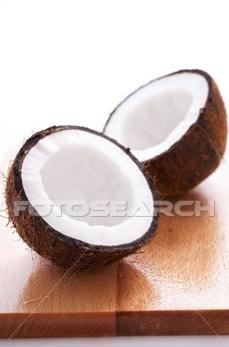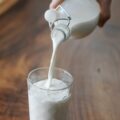A recent discussion on yahoo exposed an interesting debate – are you paying too much for your coconut milk?

If you’ve ever cooked thai food at home you’ll know that it’s not cheap; coconut milk can cost as much as £1.99 for a small 400ml can!
On a recent yahoo forum I saw a debate about coconut milk prices at Morrisons. One example of a rip-off is that they (Morrisons) used to sell coconut milk for 69p a tin a year ago; now you’ll pay £1.99 for same tin! That’s a staggering increase of 188% – nearly three times the original price!
However, have a look in the ‘ethnic section’ and they have tins of weird-brand coconut milk for 69p! You can bet the ‘weird-brand’ suppliers aren’t getting much in return for growing the fruit, and the product in the expensive tin and the cheap tin are probably the same stuff.
Morrisons pride themselves in responsible trading and fair deals. This is what Martyn Jones, Group Corporate Services Director says about Morrisons corporate responsibility policy: “At Morrisons, we care about where our food comes from, how it is produced, the people who make it and how it is moved and sold. We want our customers to be confident that food bought at Morrisons is food they can trust.” Really Martyn?
I think at the end of the day it all comes down to money and making as much of it as you can in a highly competitive supermarket industry. How can it be right to have two brands of the same food stuff at such drastically different prices? Coconut milk is coconut milk at the end of the day. It’s grown in the tropics and shipped over here. I have seen coconut farmers at work in Sri Lanka, every bit of that tree is used: the bark, wood, leaves, sap, fruit – nothing is wasted. Yet they are probably paid a paltry wage in order for us to buy it at our convenience in our local supermarket without a moment’s thought for where it comes from.
In the same ethnic aisle you’ll also find an odd assortment of bulk spices, sacks of rice, rice flour etc. all at cheaper prices than the free-from aisle. This isn’t just a phenomenon common to coconut milk alone and I’m not just picking on Morrisons here. Unfortunately for them they were the ones chastised on the forum. I’ll bet if you trawled around any of the other top five supermarkets you’d see that you are paying over the odds for lots of foods that are sold on different shelves at a much cheaper price. This is nothing new. If you’ve ever compared some products in the standard range with the ‘finest’ ranges they often taste just the same, so perhaps this is just the choice we all have to shop around, but it does show that you can cook allergy-free on a shoestring if you get savvy and explore the other shelves for price differences.
Consider also your local specialist ethnic shops; they will also sell special flours, grains, rice noodles etc. that make eating dairy free so much more interesting in bulk and at better prices than supermarkets. Always be very careful when reading ingredients though, if they’re in another language you may not spot potential dangers/allergens. Labelling laws can be far more lax in other countries too so never assume that the absence of what you’re allergic to means it’s free-from. Confused? Food labelling is a very complex area.
Coconut milk as an everyday milk replacement
If you can’t drink dairy you’ll probably have tried soya, rice and oat milk, and maybe even hemp milk, though this can an acquired taste, but have you considered coconut milk on your cereal? There are a few varieties now including Kara and Biona which taste really good.
The coconut is really a fruit, not a nut, but some people can still be allergic to coconut, however most people with a peanut allergy can tolerate coconut. It contains many nutrients that form a staple part of the diet of millions of people living in the tropics. Coconuts are a rich source of medium chain fatty acids (MCFAs), fatty acids that are more easily digested than fats found in other oils. Around 50% of these MCFA’s are made up of lauric acid, which may have antimicrobial properties and is thought to have a beneficial effect on cholesterol levels.
Consumption of ‘good fats’ is an important part of a balanced diet, contributing towards healthy cell function. Coconut milk contains 65% medium chain fatty acids (MCFAs). Unlike saturated animal fats, MCFAs are not readily stored in the body but are digested and used as energy by the body.
8 good reasons to drink coconut milk:
- 100% dairy free
- Only 2% fat
- Cholesterol & Lactose free
- Free from artificial flavours, preservatives and colourings
- Natural goodness of fresh coconut
- Suitable for coeliacs, vegetarians, vegans, and those with nut and dairy allergies
- A natural source of lauric acid
- One 250ml glass provides 37.5% of the RDA of calcium
I checked the ingredients in Kara coconut milk which include: Filtered mains water, Coconut milk 8.4%, Fruit extract concentrate ( grape juice concentrate ), Calcium phosphate, Emulsifier: Sucrose ester, Sea salt, Colour: Natural carotene.
Nothing untoward here apart from sucrose ester or E473. This is a sucrose ester of fatty acids and is used as an emulsifier or stabiliser used in many drinks, jelly, cakes and sweets. No adverse reactions known!
Coconut milk offers a tasty dairy free alternative that can really enhance the variety of meals someone with a dairy allergy can enjoy. Thai curry’s are a really tasty treat and if you fancy learning how to cook them yourself why not treat yourself to a cookery class for Christmas. Last year I attended a day course at Angela Malik’s kitchen in Acton, London. The course involves cooking your own thai curry as well as other traditional dishes, teaches you how to understand and appreciate the three tastes that go into thai food and a trip to an ethnic supermarket.
Make your own coconut milk
If you’ve ever tried to buy this hairy fruit you’ll know that they’re not that easy to come by; if you do find yourself the proud owner of a couple of lovely coconuts (oo-er) there are some great, easy recipes on the internet showing you how to make your own.
A word of caution to anyone who consumes a lot of coconut milk, I found a very interesting and insightful article entitled “3 reasons why coconut milk may not be your friend” on Chris Kresser’s blog. He warns about Bisphenol A (BPA) traces found in canned food, guar gum and added fructose. He recommends two BPA free options; Native Forest and Arroy D which are available in cartons instead of cans. There is a very healthy, lengthy and heated debate in the comments on this blog post. Worth a read just to see – luckily none of my readers are ever quite so cross with what I write!
Do you drink coconut milk? Do you like it? Are you worried about any of the things mentioned in Chris Kressers blog? Or is this just another dangerous ingredient that seems to leech into our food. What is truly safe to eat these days? Every week I hear about another food scare but I’d rather be armed with all the information and make my own choices. I’ll certainly be trying to source some coconut milk in cartons for cooking curries. If I find a good one I’ll let you all know.












Leave a Reply